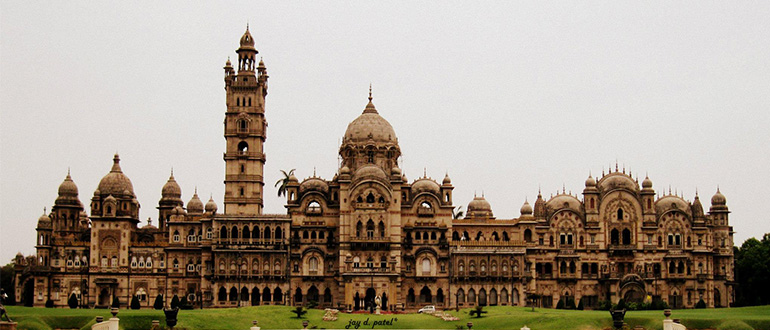
WELCOME TO GUJARAT
ITINERARY
Day 01 | Arrival at Ahmedabad (Capital of Gujarat)
Our representative will receive you at the Ahmadabad Airport and will escort you to the hotel. Check into the hotel and relax. Later in the evening driveto local market in Ahmadabad.Visit the famous Gandhi Ashram and gain an insight on his life and unprecedented contribution to India’s freedom struggle. Head back to the hotel later, for an overnight stay at Ahmedabad.
Some of the very famous and interesting markets of this city are:
- 1. LalDarwaja
- 2. Dhalgarwad
- 3. Sindhi Market
- 4. Law Garden
- 5. CG Road
Day 02 | Ahmedabad Local sightseeing
After breakfast proceed for full day sightseeing of Ahmedabad. Ahmedabad is a great tourist destination as there are number of interesting places to visit. It has splendid monuments, wonderful museums and gorgeous lakes.
Kankaria Lake
It is an artificial lake with 34 sides. This lake also has a fascinating island summer palace. It is one of the most famous picnic spots of the city. It has one of the most beautiful views of sunset.
Sardar Patel National Museum
Sardar Patel National Memorial was established in the memory of ofSardarVallabhai Patel whi was a great freedom fighter. It is also known as Moti Shah Mahal. The museum houses various portraits of Sardar Patel, his family members and friends. This memorial consists of the national flag that was designed by the Indian National Congress in 1930-31. It also has Sardar Open Garden where you can get to see peacocks.
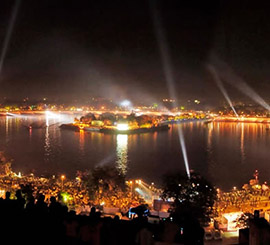
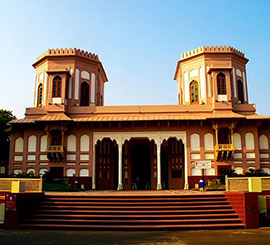
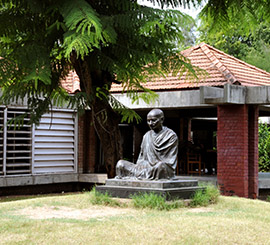
Sabarmati Ashram
Sabarmati Ashram was the central place of struggle of Mahatma Gandhi during pre independence era. The ashram houses a museum, library, auditorium and photo galleries on the life of Mahatma Gandhi. There is also archives of letters written by Gandhiji. The museum contains various manuscripts, several films composed on life of Gandhiji and India’s freedom struggle.
This ashram is built along the Sabarmati River which has a beautifully built river front.
Calico Museum of Textiles
It is one of the finest museums of the world. This museum exhibits an enormous collection of fabrics, which are collected from all over the country. The museum allows only 20 visitors per day and hence it is on first come first serve basis.
Bhadra Fort
This place boasts of splendid palace and beautiful lush green gardens. The fort is well known for the Bhadrakali Temple built in dedication to Hindu Goddess Bhadra.
Day 03|Ahmadabad Dasada{110 Kms / 2 Hours Drive}
After Morning breakfast check –out from the hotel & drive to Dasada& Check in to the hotel. Dasada also referred as Little Rann of Kutch. Afternoon visit to the Little Rann of Kutch (By jeep).
Sun Temple :-
The Sun Temple at Modhera was constructed by King Bhimdev I between 1022 and 1063. It was built two centuries before the construction of the Sun Temple at Konark. The temple is counted amongst the finest structures raised by the SolankiDynasty. Situated on a round hill, the shrine is strategically constructed in a way that during dawn the sunrays fall on the image of Surya inside the temple.There is a huge rectangular pond that is surrounded by the shrines of Lord Ganesha, Vishnu, Shiva and Goddess Sitala Mata. The pond is surrounded by 108 small and miniature shrines.
The MaatangiModhehwari Temple
The MaatangiModheshwari Temple is dedicated to Goddess Modheshwari, the Kuldevi or family Goddess of the Modh Community. It is believed that demon Karnat was creating havoc in the region by disturbing the Brahmans during their prayers.For seeking protection from the demon, all the saints went to Shri Mata Modheshwari. On hearing their grievances, she was upset as well as angry and started throwing fire from her mouth, which gave birth to Shri Mata Matangi. This incarnation of the goddess has eighteen arms, each having a weapon, like trident and dagger.
Day 04|Dasanda – Bhuj (280 Kms/ 7 Hours Drive)
After Morning breakfast check –out the hotel & drive to Bhuj, Upon arrival proceed to DSP/Collector office to obtain the permit ( Please note that all foreign clients need to obtain the permit for Banny village visit)
** Note: 2nd & 4th Saturday & Public holidays are closed at DSP/COLLECTOR office hence set the dates accordingly.
Evening visit to the Bhuj city and market.Overnight at Hotel.
About Bhuj
Bhuj was founded in 1548 AD by RaoKhengarji I, starting a dynasty of jadeja rulers that ruled over Kachchh for 400 years. And so, the old walled city of Bhuj is the most important town in the area. The place lies at the heart of Kutch and is linked by many roads to the rest of the peninsula. The cenotaphs, erected at the royal cremation ground as memorials to the former rulers and the CHHATRI of RaoLakhpatji who died in 1761, are fine specimen of Kachchhi architecture. Tourists should have a look at the interior, which has a stone tablet in memory of the ruler and 15 of his consorts. The exterior walls bear sculptures of deities, hunting scenes, animals and couples in local Costumes. Also in Bhuj are the Aina Mahal or Glass Palace which was built in the 18th century, the Kutch Museum, which is Gujarat’s oldest, and the Bharatiya Sanskruti Darshan complex is renowned for its Ram Leela Frescoes and other timeless objects d'art. The rural bazaars of Bhuj sell its exquisite handicrafts, where icons of old customs and traditions are still alive in handicrafts, embroidered fabrics, leatherware, carved and lacquered furniture and metal ware, especially, old silver ware.
AINA MAHAL
The AinaMahal, which now serves as a museum, was built during the rule of RaoLakhpatji. It now stands as a repository of the culture and history of Kachchh. As referred above, the building bears the influence of its architect RamsangMalam who was exposed to European style during his long sojourn to Holland.
PRAGMAL PALACE
The palace opposite AinaMahal, was built in 1797. Its tower and Corinthian pillars display strong British influence through its floral patterns.
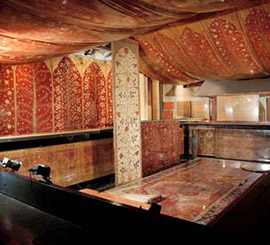
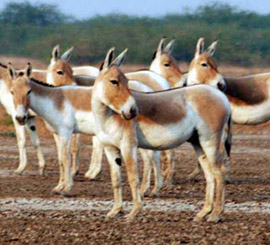
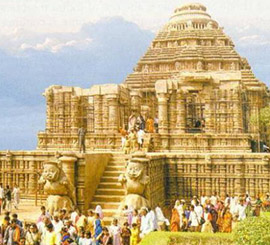
Day 05 | BhujFullday visit to the Banny villages (150 Kms / 4 Hours onway)
Fullday excursion to the Banny villages to see various typical villages to see the traditional art and culture of Gujarat. Evening return to Bhuj hotel for overnight
Day 06 | Bhuj Sayla (260 Kms)
After breakfast drive to Sayla. Evening arrival at Rajkot and check in at Hotel.Afternoon sightseeing of Sayla& Walking tour of the Village.Overnight stay at hotel.
Day 07 | Sayla Rajkot
After morning breakfast check –out the hotel and drive to Rajkot. Check into the hotel and drive to local Rajkot sightseeing. Visit Mahatma Gandhi House ,Karba Gandhi No Delo, Watson museum, Aji Dam, JagatMandir, Rajkumar College, Lang Library, LalPari Lake and Randerda.
Karba Gandhi No Delo
Karba Gandhi No Delo / Mahatma Gandhi HouseThe Karba Gandhi No Delo is the house of the Mahatma Gandhi where he lived from the age of six. The Mahatma Gandhi House has a good collection of things related to the Mahatma Gandhi's life. The Mahatma's Passion for the handloom is preserved in the form of a small weaving school.
Watson MuseumThe Watson Museum and Library commemorates the work of Colonel John Watson, political agent from 1886 to 1889. It is a jumbled attic of the collection with the 3rd century inscriptions and a delicate ivory work overseen by a marble statue of Queen Victoria. The Watson Museum has collection of precious objects of colonial period, human history and cuture, and History of Rajkot
LalPari Lake and Randerda

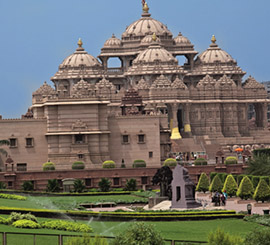
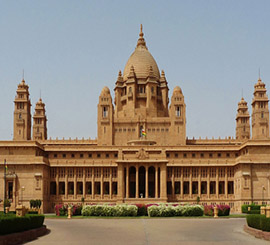
LalPari Lake and Randerda is a picturesque picnic spot, situated about 5 kms. from Rajkot.
Aji Dam
Aji Dam is situated about 8 kms. from Rajkot and supplies the town's water
RashtriyaShala
RashtriyaShala was founded by Mahatma Gandhi which has a center of patola weaving.
JagatMandir
JagatMandir is beautiful carved temple of ShriRamkrishnaParamhansa. It is made of red stones.
Rajkumar College
The world famous Rajkumar College is located in the city. This college dates back to the 19th century and is regarded as one of the India's best private colleges. It was set up by the British for the education of the princes of the Indian state.
Lang Library
The Lang Library has a collection of thousands of documents and books covering every period in Rajkot and Saurashtra (region) history.
Day 08|Rajkot Dwarka
After morning breakfast check –out the hotel and drive to Dwarka.Enroute Visit Bhav Nagar Sea Temple. Reach Dwarka check into the hotel. drive to localsightseeing visit Rukmani Temple Nageswar Temple, Dwaraka Temple, Light House. Overnight stay at hotel.
Dwarkadhish Temple / JagatMandir

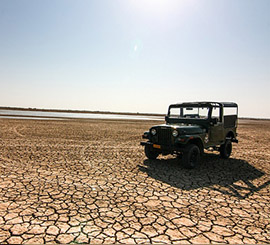
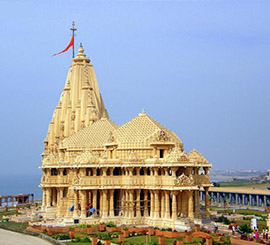
Dwaraka is known all over the world for the Dwarkadhish temple, the 'Lord of Dwarka'. This temple is also known as the JagatMandir or the temple of the world. This temple was constructed over 1400 years ago and houses the image of Lord Krishna. This temple is one of the most famous pilgrimage place for the Hindus and attracts pilgrims from all over the world. This temple is magnificently built on the traditional lines and has five floors supported by 60 columns. The temple is profusely carved from the base to the pinnacle. The temple is built of sandstone. The interior is simple while the exterior is covered with elaborate carvings. Some of the major festivals of Janmashtami and Navratri are celebrated with great enthusiasm and rejoicing in the Dwarka. After visiting the main temple, some of the devotees visit the ShankhoddharBeyt or BeytDwaraka
Day 09|Dwarka Somnath – Sasangir
After morning breakfast check –out the hotel and drive to saangir.Enroute visit somnath. Visit local sightseeing in somnath. Evening drive to Sasangir. Overnight stay at hotel.
Sasangir is located in the paisley-shaped Kathiwad peninsula of Gujarat. Lying on the south-western fringes of the Saurashtra peninsula (west-central India), Sasangir or the Gir National Park is the natural habitat of some 300 Asiatic lions. A visit to Sasangir naturally means a visit to the lion sanctuary. The Sasangir National Park was created in 1913 and was given a sanctuary status in 1965. Easily accessible from the nearby major towns and cities, the terrain here is rugged with steep rocky hillsides and a few springs. Sasangir is also the natural habitat of a number of rare species of plants and animals that attract a large number of tourists every year.
Day 10|Sasangirlocal Sightseeing
After Morning breakfast visit local sightseeing in Sasangir. Visit jungle visit, and nalsarovar. Overnight stay at hotel.
Jungle
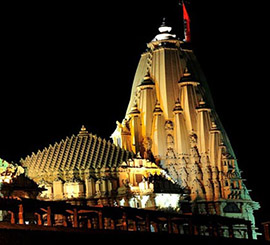
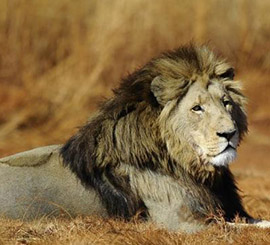
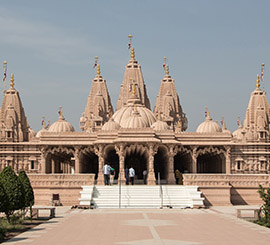
Sasangir is the natural habitat of a number of rare plants and animals. The entire area is characterised by teak trees and a mixture of deciduous trees including sal (Shorea), dhak (Buteafrondosa), jamun (Syzigiumcumini), acacia, banyan and thorn forests. It is a hilly tract with many rivers and beautiful long drives. Apart from the exotic variety of flora, Sasangir also houses some of the unique and rare species of animals. Besides the Asiatic lion, there are leopards, sambar, chital (spotted deer), nilgai (antelope), chowsingha (four-horned antelope), chinkara (gazelle), wild boar, langur,jackal and hyena along with numerous birds like paradise flycatcher, Bonneli\’s eagle, crested serpent eagle, woodpeckers, back headed cuckoo, pied woodpecker, painted sand grouse, bush quail, flamingos and grey partridges.
Nalsarovar
The entire area of Sasangir is flanked with three unique reservoirs, one of which is the Nalsarovar Lake. A large number of water birds and other migratory birds come to the lake every year. This makes Nalsarovar lake a birdwatchers\’ paradise. Nalsarovar is also the excellent spot to photograph the birds in their natural habitat. A visit to the lake will be a treat to your eyes as you can get to see flocks of birds like the paradise flycatcher, back-headed cuckoo, pied woodpecker, various species of eagles, painted sand grouse, bush quail, flamingo, partridge, parrot, and peacock. You can also visit the small temple dedicated to Lord Krishna near the TulsiShyam springs
Day 11|Sasangir Bhavnagar
After morning breakfast check –out the hotel and drive to Bhavnagar. Check into the hotel and rest of the day free for your leisure’s. Overnight stay at hotel.
About Bhavnagar
An 18th century coastal city, Bhavnagar was the capital of an erstwhile princely state. Bhavnagar was founded by BhavsinhjiGohil, the rulers of Sihor in 1723 AD. It is an intermediate port with a natural harbour. To overcome the difficulty of situation and to ensure the floatation of ships even with receding tides a lockgate has been constructed at the concrete jetty. For the tourist it is a convenient base for visits to the town of Palitana and the sacred hill of Shatrunjaya.It is a premier cotton-exporting seaport on the south-easternSaurashtra coast. Today Bhavnagar is a city buzzing with people, students, marketplaces, educational institutions, and industries. It is a beautiful blend of modernism and traditionalism. People of this city are simple, easygoing and downright modest. The entire atmosphere is that of peace and comfort. It is known for its hospitality and generosity. The city has associations with Mahatma Gandhi, who went to university here, and relics of his life can be seen at Gandhi smriti in the 1895 AD Barton museum building, which also has a fine collection of coins, stamps, guns and other arms, sculpture and folk arts. Bhavnagar has myriad relics of it’s princely rule-the Maharajahs commissioned architects like Sir William Emerson, the architect of the Victoria.
Bhavnagar sightseeing
GANDHI SMRITI
It is a living monument to Gandhiji. It was opened in 1955.This is a sort of complex attached to a clock tower in the heart of the city. The tower bells with music and timings on all four sides. The smriti has a Gandhi picture gallery with photos on the Life of Mahatma Gandhi from birth to death, a small museum of ancient things, a big departmental KhadiGramodyogBhandar and a first class, well established and a well arranged running library.
GOPNATH
A beautiful hemlet on the coast of the Gulf of Khambhatand at a distance of 10 kms from Talaja, the taluka headquarter of Bhavnagar district is Gopnath; vying for eminence on the tourist circuit with development of a heritage hotel - Gopnath Bungalow - the pleasant sea-shore retreat of Gohil rulers of Bhavnagar. The Bungalow, built in a European colonial style with cottages and mansions surrounding the courtyard, faces the sea and offers beautiful view of the gulf. It attracts marine life enthusiasts for the variety of the kind found in the rocky shoals on the coast. It is also renowned for the temple of GopnathMahadev, where Narsingh Mehta is believed to have performed penance.
TAKHETESHWAR TEMPLE
Built on a small hill top, the holy temple of Lord Shiva named in the memory of Maharaja Takhtasinhji is a very popular place. It is made of pure marble and constructed in the late nineteenth century. The picturesque view from the temple adds to the serenity of the place. Thousands of people pay their visit daily to this hilly place. Velavadar
Day 12| Bhavnagar – Baroda
After morning check –out the hotel and drive to Baroda. Reach Baroda check into the hotel and drive to local market in Baroda. Overnight stay at hotel.
Day 13| Baroda Local Sightseeing
After morning breakfast visit local sightseeing Vadodara are the Laxmi Vilas Palace, Naulakhi Well, Maharaja Fateh Singh Museum and NazarBagh Palace.
Laxmi Vilas Palace
The Laxmi Vilas Palace was built by R.H. Chisholm. This palace was built in full throttle 19th century Indo-Saracenic style for Rs.6 million. The after early designs by the military engineer Mant, the facade of this extraordinary building is 150 m wide. The palace is faced in red Agra sandstone with dressings of blue trapstone from Pune and Rajasthani marble. The approach to the palace is very pleasant and the interior is spectacular. The Durbar Hall has walls and floor in Venetian mosaic and marble is used extensively throughout, as is stained glass from London.
Maharaja Fateh Singh Museum
The Maharaja Fateh Singh Museum contains some fine European paintings.
Tambekar Wada
The Tambekar Wada is a wooden multistoreyed townhouse. This typical Maratha mansion was once the residence of BhauTambekar, Diwan of Baroda. Inside are some beautiful 19th century murals.
KirtiMandir
The KirtiMandir is situated around the Sursagar Lake in the centre of the town. The KirtiMandir houses the Gaekwad Samadhi or memorial ground.
Sayaji Bagh
Within this shady, pleasant park is the Baroda Museum, which houses some good Asian statues and carvings, mangy zoology exhibits and an Egyptian room. The gallery has lovely Mughal miniatures and a motley crew of European masters.
NazarBagh Palace
The NazarBagh Palace has a Sheesh Mahal (Mirror Palace), a collection of the embroidered cloth and the jewel 'Star of the south'. The solid gold and silver guns, each barrel 127 kgs. in weight were kept here which on ceremonial occasions, were drawn by the teams of milk-white bullocks.
Makarpura Palace
Makarpura Palace is situated about 7 kms. to the south of the city. This was built in an Italian Renaissance style and has a facade of three storeys each with an arcade running around beautiful gardens.
Naulakhi Well
The Naulakhi Well is a fine baoli, about 50 kms. to the north of the palace. It is a well preservedbaoli (step well) which has galleried compartments or levels.
Day 14|Baroda (Departure)
After Morning breakfast drive to Barodaairport for your flight back home, feeling contented about a wonderful holiday you spent in the Gujarat.



